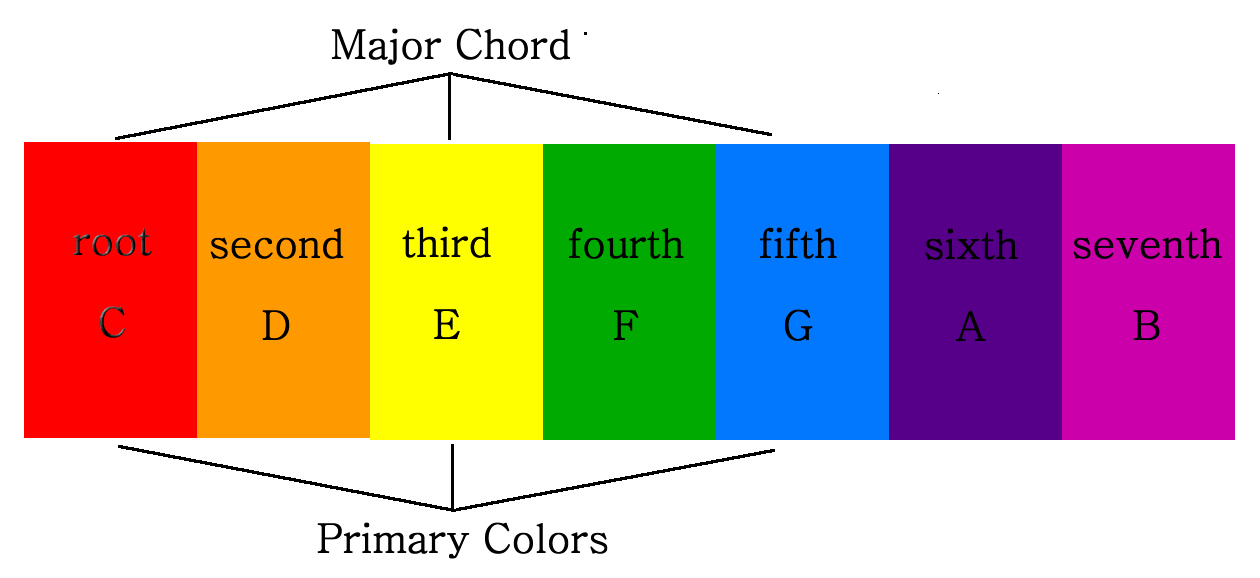The Power of Music
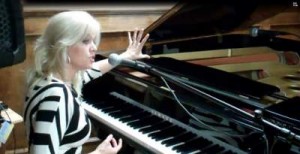 Daily music making is fast becoming a popular health and wellness alternative, but it is simply the rebirth of an ancient philosophy. We know that music is naturally therapeutic. When we play, our energies are channeled constructively and we are carried away from our troubles. It puts us in touch with our feelings, and brings joy. This has been my life and experience as a musician.
Daily music making is fast becoming a popular health and wellness alternative, but it is simply the rebirth of an ancient philosophy. We know that music is naturally therapeutic. When we play, our energies are channeled constructively and we are carried away from our troubles. It puts us in touch with our feelings, and brings joy. This has been my life and experience as a musician.
Joanne Jolee
A Spirit That Never Dies
My three year old granddaughter was in the backseat of the car, my little helper for the morning. She began to sing.
One fine day in early spring
I played a funny trick
Right in the yard behind my house
I planted a lollipop stick.
I had not heard that song for twenty years, since the time when I last sang it to Ari’s mother, my daughter Christine, who had clearly passed it on to Ari. I joined in.
And everyday I watered it well
And watched it carefully
And hoped one day my lollipop stick
Would grow to a lollipop tree.
What a delightful moment drenched in pleasant and joyful memories – all carried on a simple melody.
Image description: Ariella
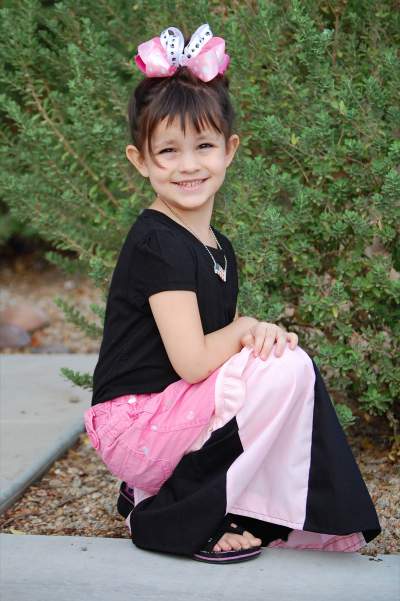
“Music, once admitted to the soul, becomes a sort of spirit and never dies.” Edward George Bulwer-Lytton (1803-1873)
Musical Intuition
I was 12 years old and clearly remember the day that I was having a meltdown. Alone in my bedroom sobbing, I took a pen and paper and started writing down my thoughts. Soon I wasn’t crying anymore, but I was absorbed arranging the ideas into poetic rhymes. I took the lines to the piano and added music and soon I was singing all my miseries away, feeling happy and productive – and that was the point I discovered the healing power of music. A few years later my younger brother, 19 years old, committed suicide. My heart broke, but as I struggled through the grief I also felt an overwhelming gratitude that I had beautiful magical music with its power to carry me away from my troubles.
Image description: “The Power of Music” by Louis Gallait (1810-1887). A letter written by the artist illuminates the subject of this painting. It shows a brother and sister resting before an old tomb. The brother is attempting to comfort his sibling by playing the violin, and she has fallen into a deep sleep, “oblivious of all grief, mental and physical.”
“It occurred to me by intuition, and music was the driving force behind that intuition. My discovery was the result of musical perception.” (when asked about his theory of relativity)
Albert Einstein (1879 – 1955)
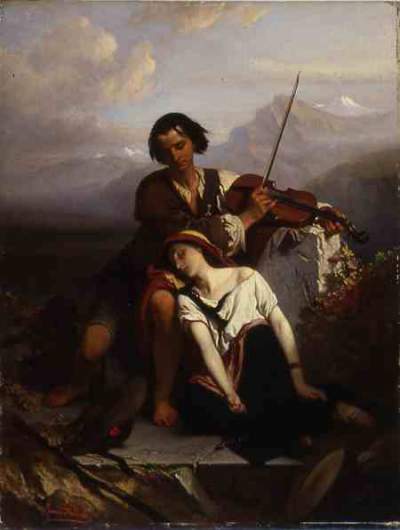
An Ancient Record
One of the oldest accounts of music therapy dates several thousand years ago. Saul, the first King of Israel, was tormented by demons and so a skillful musician was sought to play for him. David, a shepherd boy, was brought to the palace to play his harp for the king. When the demons were tormenting him, David would play, the demons would leave and the king would feel better. Though Saul was profoundly helped by the music as a passive listener, David not only was able to impart that kind of power through his acquired musical skill, but he later faced and killed the giant, Goliath!
Image description: Saul and David by Rembrandt (1606-1669)
“But now bring me a harpist.” While the harpist was playing, the hand of the LORD came on Elisha.
2 Kings 3:15

The Keys to Learning
One of the reasons music students outperform their peers academically is because of their training in observing detail. To play even a simple classical piece requires focused observation of notes, fingering, timing, and phrasing. In life, this translates to paying attention to the little things that show you care, that can prevent a slight miscalculation that results in a tragedy, and that over time leads to excellence.
Image Description: School of Athens, Raphael, Vatican, Rome. Plato stands in the center pointing upward.
I would teach the children music, physics and philosophy, but the most important is music, for in the patterns of the arts are the keys to all learning.
Plato (428- 348BC)
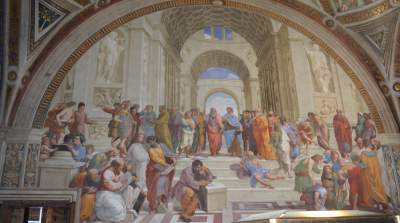
Father of Musical Harmony
Image Description: “The Universe as a Monochord” by Robert Fludd (1574-1637)
There is geometry in the humming of the strings; there is music in the spacing of the spheres.
Pythagoras (570 – 495 BC)
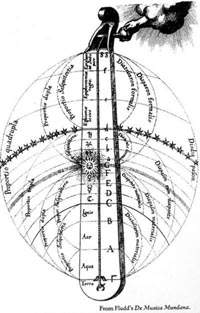
Cymatic Experiment
A fun to watch experiment showing the impact of frequency on inorganic matter.
The Musical Journey
Making the decision to begin the musical journey is empowering. You experience a heightened level of concentration as you practice. You strengthen your resolve as you meet challenges along the way, aware of the natural rhythm of enthusiasm followed by growth plateau, cycling around to fresh enthusiasm. And there is nothing more powerful than that sense of genuine accomplishment that comes with personal achievement. Stresses melt away, and the beauty and magic of the music flows through you with its healing power.
“Take a music bath – you will find it is to the soul what a water bath is to the body.”
Oliver Wendell Holmes
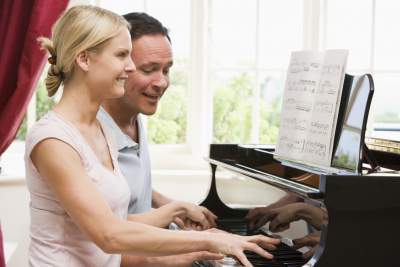
New Scientific Research
Studies show that relaxing by actively playing music, as opposed to passive activities such as watching television, produce a biological response to stress that goes all the way to the DNA level.
Playing music every day:
- Increases HGH levels, helping to reverse signs of aging
- Reduces chronic pain and depression
- Reduces blood pressure, heart and respiration rates
- Reduces the body’s response to stress
- Fortifies the immune system
- Brings joy
“Perhaps the greatest contributing factor to good health and longevity is happiness, and playing music is simply a happy joyful experience.”
Joanne Jolee

A New Music Therapy
Neurologist Kamal Chémali, M.D., medical director of the Sentara Music and Medicine Center discusses his success with Melodic Intonation therapy. Watch the extraordinary video here.
The Spectrum and the Scale
Sir Isaac Newton discovered interesting correlations between the frequencies of light and sound – seven bands of visible light and seven tones on the musical scale. The 1st, 3rd and 5th tones of the scale form the major triad upon which is built all other chords in music; the 1st, 3rd and 5th colors of the visible light spectrum are the primary colors from which come all other colors. These are interesting facts that show amazing connections between physics, optics, light, and music in our vibrating universe.
Image Description: Sir Isaac Newton’s color wheel, illustrating the correlation between the musical intervals and colors as shown in his treatise, Opticks. Each segment relates to one of the seven diatonic intervals.
“Music is the mediator between the life of the senses and the life of the spirit.”
Beethoven (1770-1827)

Music and Neuroscience
“It turns out that while listening to music engages the brain in some pretty interesting activities, playing music is the brain’s equivalent of a full body workout.” Neuroscientists are discovering that playing music every day literally changes the brain and may prevent age related cognitive decline or delay onset of symptoms of a neurodegenerative process.
The Musical Scientist
J. S. Bach is heralded as the “Newton of Music’ and his compositions are not only extraordinarily beautiful, but they are efforts to document the science of music. Those interested in learning the full health benefits of music as a therapy must study the compositions of the musical scientists of the classical period such as Bach, Scarlatti and Vivaldi, whose works capture all the mathematical complexity of music.
“To your Royal Highness I submit in deepest devotion the present small work of science which I have achieved in musique.” (when presenting his B Minor Mass, hailed as one of the greatest compositions in musical history)
Johann Sebastian Bach (1685-1750)

Getting Started in Music
The piano is known as the ‘King of Instruments’, and is the best first choice for learning to play music. Where most instruments, such as the violin, can only sound one note at a time, the piano is polyphonic and can sound more than one tone at a time creating rich and complex harmonies. It also contains the broadest frequency range of musical tones of any musical instrument. You can play simple melodies solo, or full accompaniments with other musicians.
Image Description: Joanne Jolee performs on a Yamaha concert grand piano.
“Musical training is a more potent instrument than any other, because rhythm and harmony find their way into the inward places of soul, on which they mightily fasten, imparting grace, and making the soul of him who is rightly educated graceful.”
Plato (428-348 BCE)



